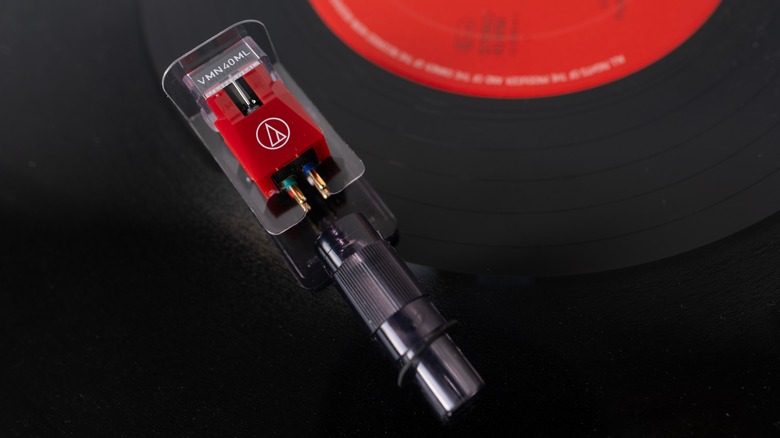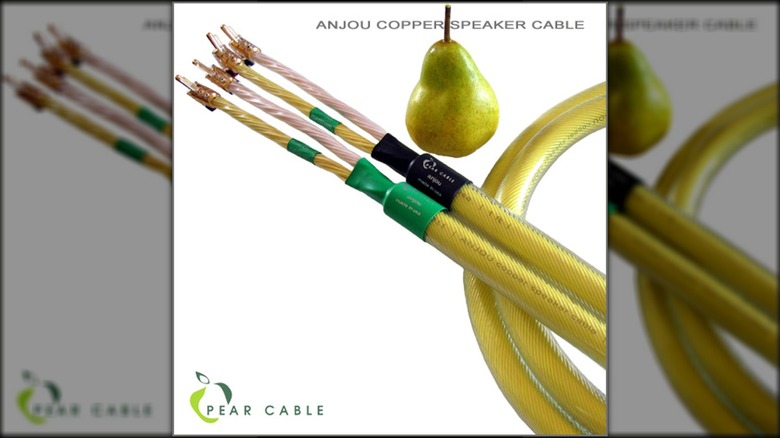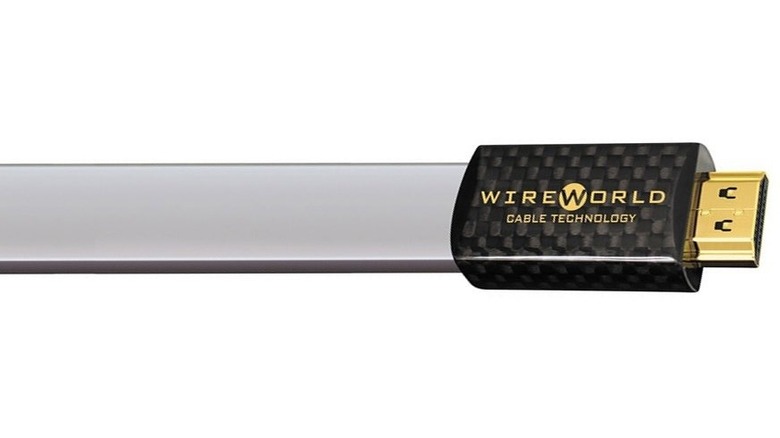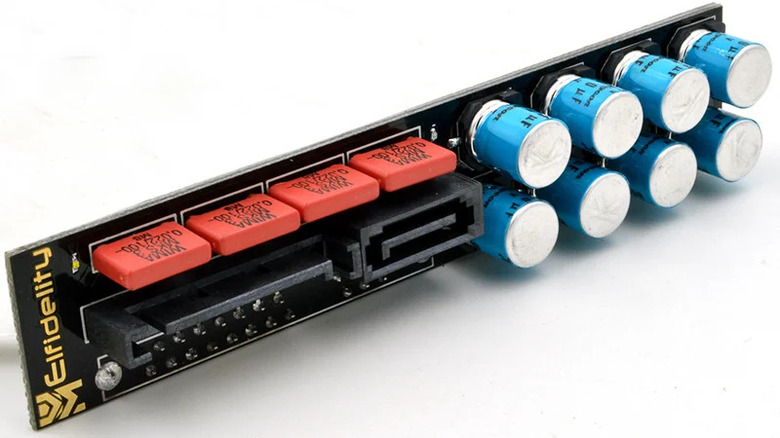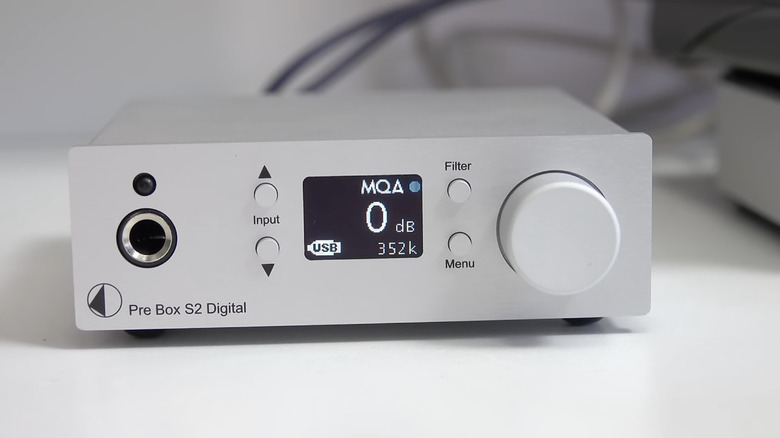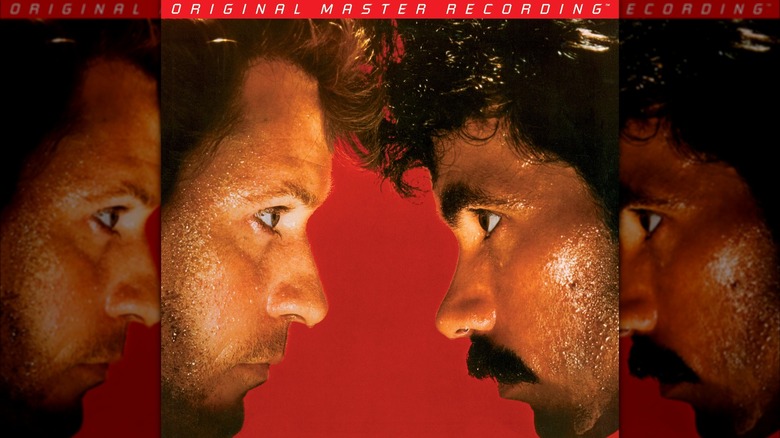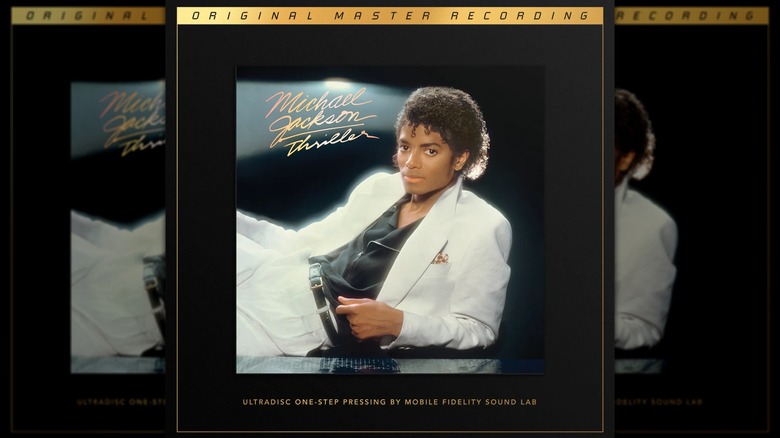5 Audiophile Products That Didn't Hold Up Under Scrutiny
The audiophile world is an interesting part of the tech industry. Much of what makes for great sound is subjective, making some product reviews far harder than the typical speeds and feeds of the latest laptop or smartphone. You might be able to measure a speaker's exact frequency response, but we all hear it differently in our heads.
For example, when I first put together my current vinyl playback setup, I learned that my $50 phono stage was artificially suppressing what my Pro-Ject Debut Carbon turntable could do. After fielding various suggestions for an upgrade, I went with something more widely recommended and, sadly, more expensive. The good news is that the difference in sound was noticeable. But it's not like I can point to measurements online that explain the dramatic increase in what I perceived as a wider soundstage.
There's a lot you can do to try to improve sound quality, but not all of it really makes a difference. Sadly, price doesn't always help figure things out, either. Some companies are easy to spot when making unrealistic claims, but others have only been exposed after getting away with advertising to audiophiles for years. Whether it's overpriced "audiophile" cables that don't measurably do anything different, add-on products that claim to make sound better but instead make it worse, let's take a look at some audiophile products that didn't hold up under scrutiny.
Expensive speaker wire shows no measurable differences
When it comes to speaker cables, it's hard to argue with physics. See, speaker cables transport electrical current from the amp to the speaker, which the speaker translates into sound. Some cables are better than others at maintaining that current and charge a higher price point to match. But speaker cable prices can get ridiculous.
The best advice you can get probably comes from an Audioholics article first published in 2004: Don't spend more than 5% to 7% of your total system cost on speaker cables and/or device interconnects, and just focus on sturdy, well-made cables. If you budgeted for expensive cables, use that money on something else.
A 2021 Audioholics video doing actual measurements of speaker cable performance showed no measurable difference between expensive and inexpensive brands, but that was far from the first time such a claim had been made. Perhaps most infamously, in 2007, Gizmodo took issue with the flowery praise that Positive Feedback levied on Pear Cable's $2,750 per-meter-long pair "Anjou" speaker cables, particularly the description of them as "danceable." This led to stage magician turned professional skeptic James Randi offering a $1 million prize to anyone who could distinguish the Anjous from Monster Cable's offerings in double-blind testing. Pear's CEO called the offer "a fake," but was seemingly in when hi-fi writer Michael Fremer accepted the challenge. It all fell apart when Pear pulled out for vaguely defined reasons. Because, of course it did.
'Audiophile' digital cables show no benefit
If you thought overpriced speaker cables were bad, just wait until you start digging into "audiophile" cables for digital standards like HDMI, USB, Ethernet, and optical Toslink. Once again, it comes down to physics: Digital is just ones and zeroes. Said another way, digital either works or it doesn't. If a cable is in-spec and delivers the data it's supposed to deliver, then you're good. A "better cable" won't improve audio or video quality over any other working cable. If an HDMI cable is defective, you usually find out pretty quickly too, as copy protection technologies are sensitive to defective parts. But if it works, it works. For longer cable runs, you may need signal boosters or some other way to maintain signal quality, but nothing ridiculous.
Still, plenty of companies sell "high-end" or "audiophile" digital cables, and it isn't hard to debunk them. In 2016, YouTuber Linus Tech Tips purchased a $1,000 HDMI cable from Wire World and found no clear differences in audio or video quality. In 2021, his team followed up by testing a bunch of different HDMI cables more scientifically using a professional cable testing device. Nothing expensive was tested, but the testing did seemingly confirm longer cables of 10 feet or more need signal-boosted "active" technologies to help ensure data travels from one end to the other. An "audiophile" network switch reviewed in 2022 was, similarly, also a bust.
Audiophile PC component power filters make the problem worse
In theory, you can sort of understand why someone might have concerns about electrical interference with their music playback. Speakers convert electrical signals to sound, after all, and cleaner power must equal cleaner sound, right? Not to mention, sometimes people notice a humming noise from different components of a computer.
The truth is that "audiophile" solutions for reducing electrical hum from your computer crossing over to its audio output are inert at best and harmful at worst. In 2020 and 2023, YouTuber Linus Tech Tips tested various — relatively inexpensive by audiophile standards, thankfully — audiophile "filter" components from Elfidelity, and they didn't appear to do anything they promised.
The initial tests were on a PCI Express card supposedly filtering noise in your computer. The mechanics of it were murky, and Linus noticed no difference with the device installed.
In the second round, Linus and his team purchased various other Elfidelity products, some of which made sense in theory (passthrough filters) and some that were nonsense on their faces (a "filter" that plugged into empty RAM slots for some reason). The tests were simple: Record an "empty" line input with and without the filters, both at idle and while stress testing the PC. Without the filters, there was noise. With the filters, the noise was worse, not better. It turned out the filters did the opposite of what they'd said, more disappointing than Linus's expectation that they'd simply do nothing.
MQA wasn't fully honest about lossless audio
The jury's out about whether most people can hear the differences between high-resolution audio and the CD-quality audio we're all used to. It's less controversial to debate if people can tell lossless audio compression from lossy formats like MP3 or AAC. Regardless, lossless audio, both hi-res and CD-quality, is an increasingly common feature of mainstream music streaming services. And given the target audience, it's fair to assume that hi-res is delivered losslessly.
In 2014, Meridian Audio, previously behind the MLP lossless codec used for DVD Audio, launched Master Quality Authenticated (MQA) as a new way to distribute hi-res audio. Meridian said what made MQA unique was that it could fold a hi-res version track into the overhead of a seemingly normal CD-quality track, to the point that "MQA CD" was launched as a format for those who had MQA decoders in their CD playback chain. There wasn't much adoption, though, until Tidal made a deal in 2019 for its hi-res titles to be MQA-encoded.
MQA being strongly implied as lossless created some skeptics, to be sure. One YouTuber, GoldenSound, decided to investigate by using the only publicly available MQA tools, Tidal's publication system, to his advantage. Using spectral analysis to compare MQA to his definitive digital master, he proved that MQA was a lossy format. In time, Tidal transitioned to lossless FLAC encoding and, by July 2024, dropped MQA entirely.
Mobile Fidelity lied about some vinyl releases
One reason why more people buy new vinyl records than buy new CDs is that vinyl can sound spectacular when done right. Your mileage may vary as to if analog formats capture something missed by digital that can make vinyl sound more "real," but there's no disputing it can sound amazing. For premium reissues of classic albums, this is often helped by using the best available source, like the original master tape or a first-generation copy, and taking great care in remastering the album. If you can master the album using an all-analog process, that's even better.
One of the longest-running and, at one point, most respected audiophile reissue labels is Mobile Fidelity Sound Lab (MoFi for short). Launched in 1977 and purchased out of bankruptcy in 2001 by Jim Davis, owner of audiophile catalog vendor Music Direct, MoFi has long catered to the high-end. Most of its titles were labeled "Original Master Recording" to establish their record was cut from the actual master copy of the album, but in later years, that label wasn't present if MoFi had to use an alternate source like a safety copy. Meanwhile, all of MoFi's "premium" releases contained promotional inserts about how its mastering chain was all-analog. MoFi didn't market "all-analog" as aggressively as its competitors, but with inserts talking about all-analog mastering and most releases claiming to use the original master, most fans were convinced.
MoFi got greedy and raised suspicion
In 2017, MoFi introduced its "One-Step" series of LPs, charging up to $125. The way they worked was that the company's teams removed steps from the stamper creation process to produce a record theoretically closer to the master. Each stamper is good for 1,000 records, with more requiring new passes at the master. For five years, with small production runs, this didn't raise any alarms. Then MoFi announced a 40,000-copy One-Step reissue of Michael Jackson's "Thriller." Fans were skeptical Sony Music would allow MoFi to take 40 passes of one of its most prized masters. YouTuber Michael Ludwigs of 45 RPM Audiophile raised the issue publicly and some mastering engineers later told the Washington Post they had similar reservations privately.
After Ludwigs' video, record store owner and YouTuber Mike Esposito of The 'In' Groove revealed that most MoFi vinyl going back at least several years were actually made from hi-res digitizations of the master tapes. MoFi soon confirmed this to Esposito in an interview. The company told him and later the Post it believed the digital step made the records sound better, plus labels were increasingly hesitant to loan tapes out. All hell broke loose, topped with a class action lawsuit and settlement.
When the list of affected titles was released, I checked it out. Of the 123 incorrectly labeled records, my modest MoFi collection included just one: Weezer's "The Blue Album." Coincidentally or not, that was one of the MoFi releases I found most disappointing.
